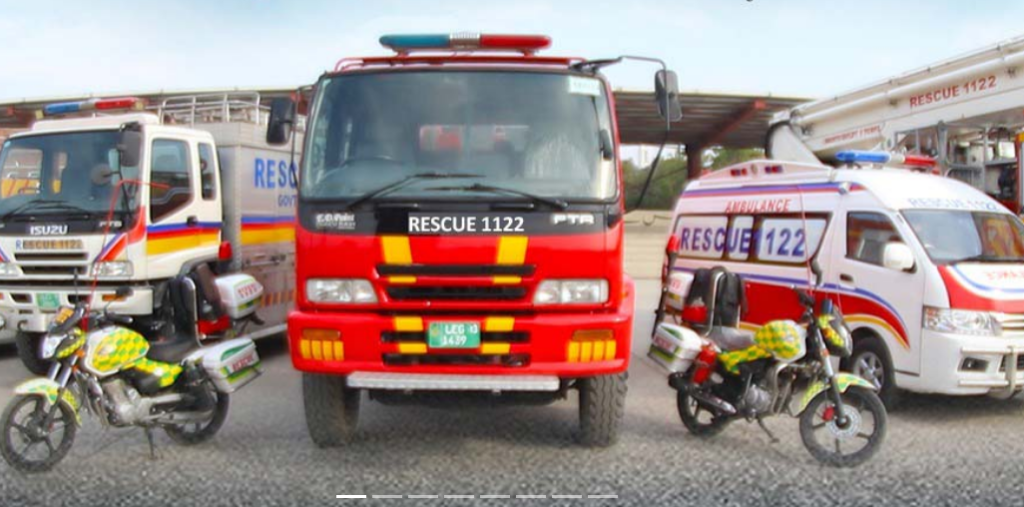The fire services in Pakistan play a crucial role in ensuring public safety and minimizing the impact of fire-related incidents. These services are responsible for responding to fires, rescuing individuals in danger, and mitigating the damage caused by various emergencies. Here is an overview of the fire services in Pakistan:
1. Pakistan Civil Defence:
The Pakistan Civil Defence organization is responsible for disaster management and emergency response, including fire-related incidents. It operates under the Ministry of Interior and focuses on training and preparing personnel to respond to various emergencies effectively.
2. Provincial Fire Departments:
Each province in Pakistan has its own Fire Department that operates within its respective jurisdiction. These departments are responsible for fire suppression, rescue operations, and managing hazardous materials incidents. They work to ensure that fire safety regulations are followed in buildings and public spaces.
3. Municipal Fire Brigades:
In addition to provincial fire departments, many major cities have their own municipal fire brigades. These brigades are responsible for responding to fires and other emergencies within the city limits. They often work closely with other emergency services to provide a coordinated response.
4. Training and Equipment:
Firefighters in Pakistan undergo rigorous training to develop the skills needed to respond effectively to various emergencies. They are trained in fire suppression techniques, search and rescue operations, handling hazardous materials, and first aid. Fire departments are equipped with firefighting apparatus such as fire trucks, hoses, breathing apparatus, and other specialized equipment.
5. Challenges
The Fire Services in Pakistan face several challenges, including inadequate resources, outdated equipment, and insufficient training facilities. Additionally, public awareness about fire safety and prevention measures needs to be improved to reduce the occurrence of fire-related incidents.
6. Collaborations and International Support:
Efforts are being made to improve the capabilities of the Fire Services in Pakistan through collaborations with international organizations and training programs. These partnerships aim to enhance firefighting techniques, share best practices, and provide modern equipment to improve emergency response capabilities.
7. Importance of Fire Safety Awareness:
Promoting fire safety awareness among the general public is crucial to reducing fire incidents. Educational campaigns, workshops, and seminars are conducted to educate individuals about fire prevention, evacuation procedures, and the proper use of fire extinguishers.
In conclusion, the Fire Services in Pakistan are essential for safeguarding lives and property from the devastating effects of fires and other emergencies. Efforts to enhance resources, training, and public awareness will contribute to improving the overall emergency response capabilities of the country.
8. Urbanization and Infrastructure:
As Pakistan continues to experience rapid urbanization, the demand for effective fire services has grown significantly. Urban areas with high-rise buildings, commercial complexes, and densely populated neighbourhoods require specialized firefighting techniques and equipment. Fire departments are adapting to these changing landscapes to ensure they can respond promptly and effectively to emergencies in these areas.
9. Community Involvement:
Engaging the local community is crucial for fire prevention and safety. Fire departments work to educate communities about fire hazards, emergency protocols, and evacuation procedures. Encouraging residents to take proactive steps, such as installing smoke detectors, practising fire drills, and ensuring safe electrical wiring, can contribute to minimizing fire risks.
10. Specialized Response Units:
In recent years, there has been a push to establish specialized response units within fire departments. These units are trained to handle specific types of emergencies, such as hazardous material spills, high-angle rescues, and urban search and rescue operations. This diversification of expertise enhances the overall capabilities of fire services.
11. Legislative Framework
Pakistan has a framework of laws and regulations pertaining to fire safety and prevention. These regulations outline standards for building codes, fire exits, fire alarms, and other safety measures. Authorities are working to enforce these regulations more effectively to ensure that buildings and public spaces adhere to safety requirements.
12. Continuous Improvement:
Efforts to modernize and enhance the capabilities of the fire services in Pakistan are ongoing. This includes investments in advanced firefighting equipment, technology, and training methods. Continuous improvement helps fire departments stay prepared to handle a wide range of emergencies effectively.
13. Role in National Emergencies:
The fire Services in Pakistan also play a vital role during national disasters, such as earthquakes and floods. They collaborate with other emergency response agencies to provide aid, rescue operations, and relief efforts to affected areas. Their expertise in managing crises is invaluable in these challenging times.
In conclusion, the fire services in Pakistan serve as the first line of defence against fire-related emergencies, contributing to the safety and well-being of the nation’s population. Through ongoing efforts in training, resource allocation, public awareness, and collaboration, these services are working to enhance their capabilities and ensure a more resilient response to various emergencies.

